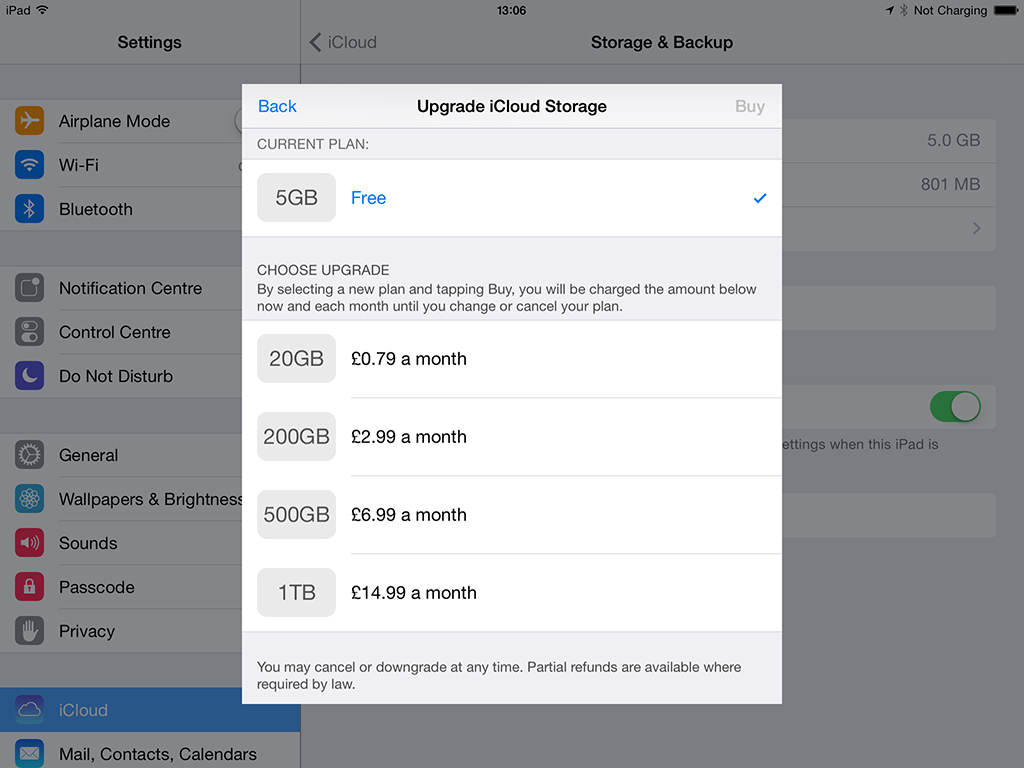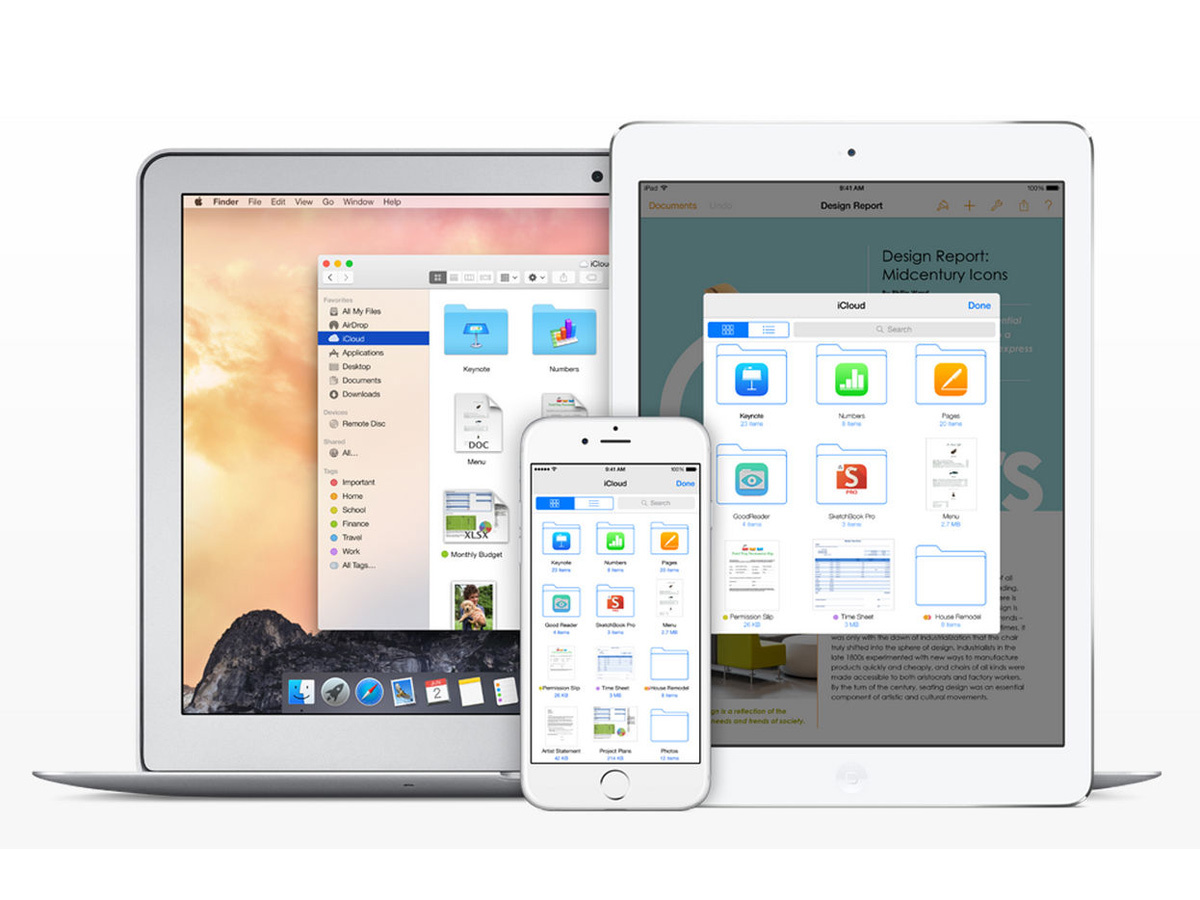Apple’s lower iCloud prices still aren’t good enough
Until iCloud back-up ‘just works’, Apple’s not offering a fully Apple-like experience

“Your iCloud storage is almost full.”
How I’ve grown to hate those words, periodically emailed to me by Apple. I barely use iCloud to save anything manually. I never save files to it from my Macs, and prefer Dropbox for saving iOS app documents, wherever possible. Still, Apple’s happy to email very often indeed to inform me: “Your iCloud storage is almost full”.
Each time I read the email, it feels more threat than reminder. “Your iCloud storage is used for iCloud Mail and to automatically back up the most important data on your iPhone, iPad and iPod touch — your photos and videos, device settings, app data, messages and more,” continues the email, the inference being it would be a terrible shame if something were to happen to all those things. “To continue using these iCloud features without interruption, you can upgrade your storage plan from your iPhone, iPad, iPod touch or Mac,” it adds, helpfully, waggling a payment terminal in my face while wearing the kind of steely expression that suggests non-payment might result in a pair of tight-fitting concrete boots and a trip to the local pond. (Ha! The joke’s on Apple — our local pond is only three feet deep.)
I’ve therefore spent time of late playing a thrilling game of ‘manage the back-up’, pruning chunks of my iCloud back-ups to the point I can’t really hack any more away without rendering them pointless. In part, this was down to sheer stubbornness, but it was also a response to Apple’s absurdly expensive iCloud pricing, which started at a laughable £14 per year for 10 GB, moseyed on through £28 per year for 20 GB, and went all the way up to £70 annually for a frankly laughable and piffling 50 GB.

At WWDC 2014, Apple announced it was all-change for iCloud pricing, and the new tiers are live. In the UK, you now get 20 GB for just under a tenner, 200 GB for £36, 500 GB for £84, and 1 TB for £180. (Those playing close attention will wonder why 1 TB costs more than twice the price for 500 GB, but the answer is probably some combination of ‘rounding errors in currency conversion’, ‘those Brits will pay it anyway’ and ‘Apple lacks the scale for everyone to use 1 TB of data, so please just avoid that option — thanks’.)
It’s still not enough. Apple still only gives you 5 GB of space for free. On the surface, that might compare favourably to rival services — Dropbox gives you 2 GB; OneDrive and Google Drive each offer 15. But such thinking evaporates when you realise how rapidly iCloud storage is eaten up by device back-ups. A single iPhone’s Camera Roll can be larger than 5 GB in size, and if you’ve multiple devices, you’ve no chance of backing them all up.
This is clearly a first-world problem with a whiff of entitlement about it. You might argue people should just stump up the cash. The thing is, not enough people back-up their data as it is, and Apple has a reputation for making things that just work. Right now, iCloud back-up often doesn’t work or won’t work without substantial management effort — and that isn’t very Apple.
And so people just switch it off. They’re not prepared to pay extra after they’ve splashed out loads of cash on a shiny new device, and certainly not when they’ve bought two or more. It’d be great for the company to recognise this shortcoming. Perhaps you could get 5 GB for every active device you own rather than just the first, or storage space could exempt back-ups. But then leaving money on the table isn’t very Apple either.
READ MORE: iOS 8 review



